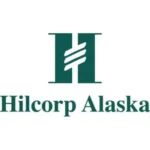Three companies are exploring a groundbreaking carbon capture and storage (CCS) venture between Japan and Alaska. Sumitomo Corporation, Kawasaki Kisen Kaisha (“K” LINE), and Hilcorp Alaska have signed an agreement to study the feasibility of building a CCS value chain that would transport liquefied CO2 from Japan to Alaska for storage.
The study, announced during the 4th Japan-US CCUS Working Group meeting, marks the first time Japanese firms have collaborated on cross-border CCS commercialization with a US partner. It aligns with Japan’s goal to initiate CCS projects by 2030 and follows a joint statement by Japanese and US leaders to evaluate potential carbon dioxide transport and storage hubs.
Alaska’s estimated 50-gigaton CO2 storage capacity, equivalent to Japan’s emissions over 50 years, makes it an attractive CCS destination. The state’s existing oil and gas infrastructure could support the project.
While the companies tout the initiative’s potential to contribute to carbon neutrality, the project faces technical and economic hurdles. The feasibility study will examine CO2 storage capacity, liquefied CO2 vessel requirements, and the business environment.
As global pressure mounts to reduce carbon emissions, this Japan-Alaska CCS collaboration represents a significant step in exploring innovative, cross-border solutions to climate change mitigation.





